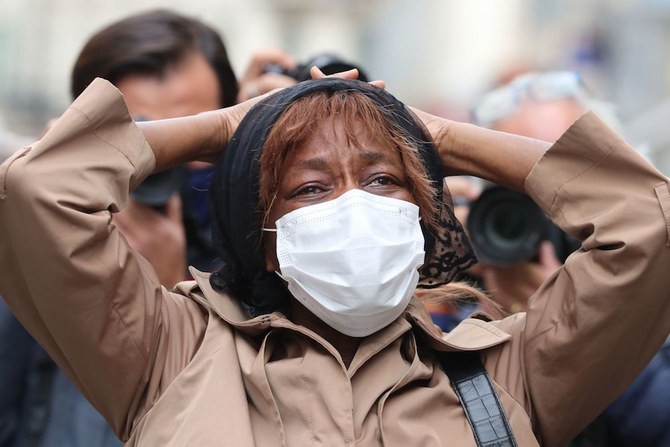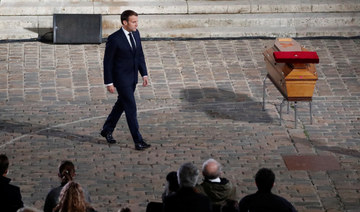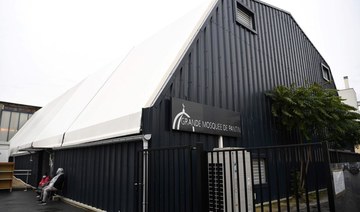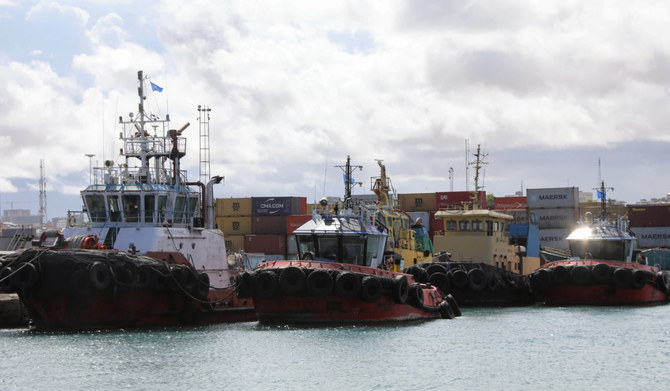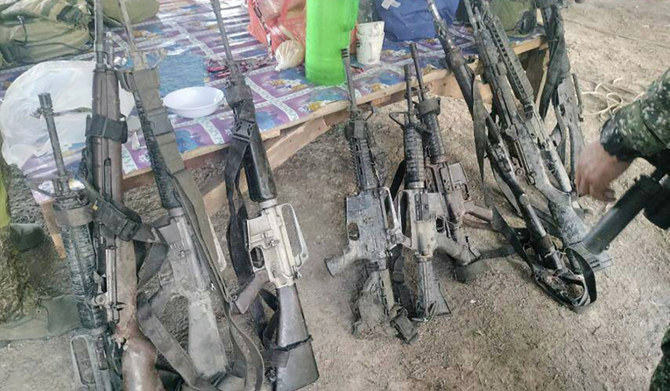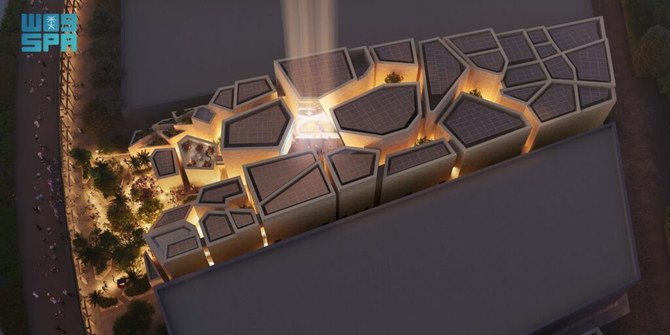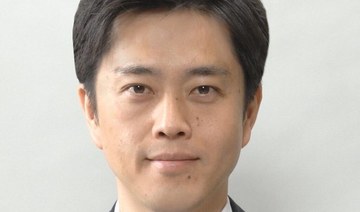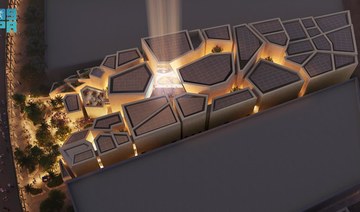NICE: A man wielding a knife killed three people at a church in the French city of Nice on Thursday, slitting the throat of a woman in what President Emmanuel Macron called an “Islamist terrorist attack.”
The assailant, who was shot and wounded by police, was identified as Brahim Aouissaoui, a 21-year-old Tunisian migrant who arrived in Italy late last month and then traveled to France, sources close to the inquiry said.
“He kept repeating ‘Allahu Akbar’ (God is Greatest) even while under medication” as he was taken to hospital, Nice’s Mayor Christian Estrosi told journalists at the scene.
The man attacked worshippers inside the Basilica of Notre-Dame in the heart of the Mediterranean resort city, slitting the throat of an elderly woman in an apparent beheading attempt.
The body of a man, a church employee of about 45, was also found in the church, while another woman — a mother in her forties — succumbed to her injuries after seeking refuge in a nearby bar.
Video footage shows police entering the church in Nice where the attack is thought to have been carried out. (Twitter)
Churches across France sounded death knells, the traditional bell toll to mark a death, at 3:00 pm.
The killings, which occurred ahead of the Catholic holy day of All Saints Day on Sunday, prompted the government to raise the terror alert level to the maximum “emergency” level nationwide.
Macron, who quickly traveled to Nice, announced increased surveillance of churches by France’s Sentinelle military patrols, to be bolstered to 7,000 troops from 3,000.
Security at schools would also be boosted, he said.
“Quite clearly, it is France that is being attacked,” Macron said, and vowed the country “will not give up on our values.”
The country has been the target of widespread anger in the Islamic world after Macron vowed to take the fight to radicals after the October 16 beheading of a history teacher by an extremist for having shown pupils cartoons of the Prophet Muhammad in a free speech lesson.
Several suspected radicals have been arrested in dozens of raids in France after teacher Samuel Paty’s murder, and NGOs with alleged links to them have been shuttered.
There have been unconfirmed reports that at least one of the victims was decapitated. (Twitter)
But some claim Macron is unfairly targeting France’s estimated five to six million Muslims — the largest community in Europe.
Several Muslim-majority have launched campaigns to boycott French products, while protesters burnt the tricolor flag and posters of Macron as demonstrations were held in Syria, Libya, Bangladesh, Afghanistan, Pakistan and the Palestinian territories.
On Thursday, Macron urged people of all religions to unite and not “give in to the spirit of division.”
Daniel Conilh, a 32-year-old waiter at the Grand Cafe de Lyon, a block from the church, said it was shortly before 9:00 am when “shots were fired and everybody took off running.”
“A woman came in straight from the church and said, ‘Run, run, someone has been stabbing people’,” he told AFP.
French anti-terror prosecutors are handling the inquiry.
The attacker was captured by police and taken to hospital. (Twitter)
France has been on high alert since the January 2015 massacre at the satirical weekly magazine Charlie Hebdo marked the beginning of a wave of jihadist attacks that have killed more than 250 people.
Tensions have heightened since last month, when the trial opened for 14 suspected accomplices in that attack.
The paper marked the start of the court proceedings by republishing cartoons of the Prophet Muhammad that infuriated millions of Muslims worldwide — the same caricatures that Paty used as lesson material.
Days after the trial opened, an 18-year-old man from Pakistan seriously injured two people with a meat cleaver outside Charlie Hebdo’s former offices in Paris.
After Thursday’s attack, Malaysia’s former prime minister Mahathir Mohamad sparked outrage by tweeting that “Muslims have a right to be angry and to kill millions of French people for the massacres of the past.” Twitter later deleted his post.
Adding to the nervousness, a Saudi citizen wounded a guard in a knife attack at the French consulate in Jeddah on Thursday.
And police in the city of Lyon said they arrested an Afghan who was spotted carrying a 30-centimeter (12-inch) knife while trying to board a tram.
French foreign minister Jean-Yves Le Drian on Thursday proffered “a message of peace to the Muslim world,” saying France was a “country of tolerance.”
“Do not listen to the voices that want to stoke distrust,” he said in parliament.
World leaders expressed solidarity with France, including US President Donald Trump who tweeted: “These Radical Islamic terrorist attacks must stop immediately. No country, France or otherwise can long put up with it!“
In Nice, painful memories remain fresh of a jihadist attack during Bastille Day fireworks on July 14, 2016, when a man rammed his truck into a crowded promenade, killing 86 people.
Abdallah Zekri, director general of the French Council of Muslim Worship (CFCM) denounced Thursday’s attack and urged French Muslims to cancel festivities to mark the Mawlid, or the Prophet’s birthday, which ends Thursday, “in solidarity with the victims and their loved ones.”





